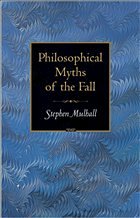Did post-Enlightenment philosophers reject the idea of original sin and hence the view that life is a quest for redemption from it? In Philosophical Myths of the Fall, Stephen Mulhall identifies and evaluates a surprising ethical-religious dimension in the work of three highly influential philosophers--Nietzsche, Heidegger, and Wittgenstein. He asks: Is the Christian idea of humanity as structurally flawed something that these three thinkers aim simply to criticize? Or do they, rather, end up by reproducing secular variants of the same mythology?
Mulhall argues that each, in different ways, develops a conception of human beings as in need of redemption: in their work, we appear to be not so much capable of or prone to error and fantasy, but instead structurally perverse, living in untruth. In this respect, their work is more closely aligned to the Christian perspective than to the mainstream of the Enlightenment. However, all three thinkers explicitly reject any religious understanding of human perversity; indeed, they regard the very understanding of human beings as originally sinful as central to that from which we must be redeemed. And yet each also reproduces central elements of that understanding in his own thinking; each recounts his own myth of our Fall, and holds out his own image of redemption. The book concludes by asking whether this indebtedness to religion brings these philosophers' thinking closer to, or instead forces it further away from, the truth of the human condition.
Review:
... Mulhall's re-opening of issues of fall and redemption is not so much a re-construction of a specific answer as it is a re-articulation of the germane questions and a re-thinking of possible responses. Mulhall simultaneously puts into question the adequacy of the philosophical myths and raises the prospect of reconsidering the Christian account. Thomas Hibbs(First Things)
Table of contents:
Acknowledgments vii
Introduction 1
CHAPTER 1: The Madman and the Masters: Nietzsche 16
CHAPTER 2: The Dying Man and the Dazed Animal: Heidegger 4
CHAPTER 3: The Child and the Scapegoat: Wittgenstein 85
Conclusion 118
Index 125
Mulhall argues that each, in different ways, develops a conception of human beings as in need of redemption: in their work, we appear to be not so much capable of or prone to error and fantasy, but instead structurally perverse, living in untruth. In this respect, their work is more closely aligned to the Christian perspective than to the mainstream of the Enlightenment. However, all three thinkers explicitly reject any religious understanding of human perversity; indeed, they regard the very understanding of human beings as originally sinful as central to that from which we must be redeemed. And yet each also reproduces central elements of that understanding in his own thinking; each recounts his own myth of our Fall, and holds out his own image of redemption. The book concludes by asking whether this indebtedness to religion brings these philosophers' thinking closer to, or instead forces it further away from, the truth of the human condition.
Review:
... Mulhall's re-opening of issues of fall and redemption is not so much a re-construction of a specific answer as it is a re-articulation of the germane questions and a re-thinking of possible responses. Mulhall simultaneously puts into question the adequacy of the philosophical myths and raises the prospect of reconsidering the Christian account. Thomas Hibbs(First Things)
Table of contents:
Acknowledgments vii
Introduction 1
CHAPTER 1: The Madman and the Masters: Nietzsche 16
CHAPTER 2: The Dying Man and the Dazed Animal: Heidegger 4
CHAPTER 3: The Child and the Scapegoat: Wittgenstein 85
Conclusion 118
Index 125

